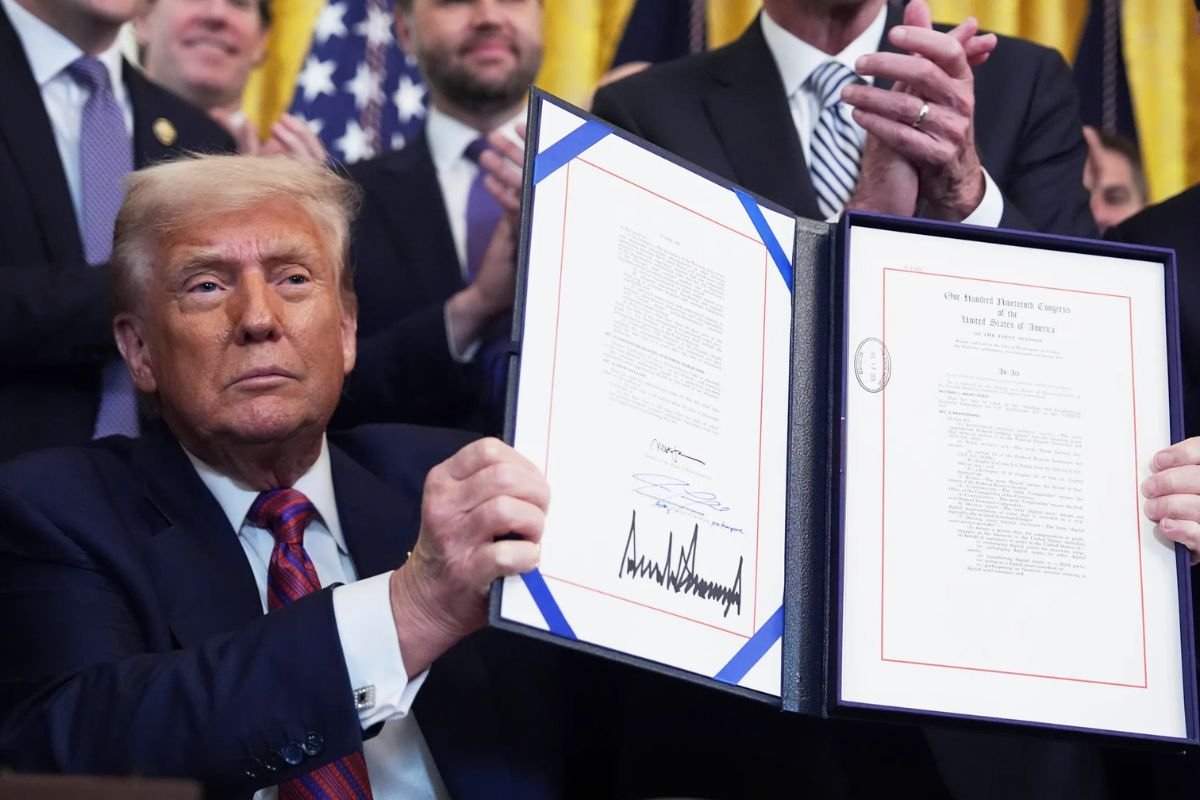Key Points:
- Private equity enters 401(k) space, unlocking retail capital.
- KKR expands evergreen funds, reflecting rising demand.
- France eyes margin caps, pressuring healthcare buyouts.
A new executive order expands access to private equity, crypto, and real estate through retirement plans, unlocking opportunities for asset managers and savers alike.
In a move poised to reshape long-term investing in the U.S., a new executive order has been signed permitting 401(k) retirement plans to include alternative investments, such as private equity, cryptocurrencies, and real estate, in their offerings. With approximately $9 trillion in 401(k) assets and 90 million U.S. participants, the change represents a major breakthrough for alternative asset managers who have long sought access to these retirement accounts.
Though no regulation previously prohibited such investments, plan managers have historically avoided alternatives due to concerns over liquidity, fees, and legal liability. The new directive instructs federal regulators to re-examine and clarify the existing guidelines, reducing perceived barriers and enabling broader diversification options within defined-contribution retirement vehicles.
Private Equity and Crypto Stand to Benefit
Industry insiders suggest that private equity firms have lobbied consistently for 401(k) access, citing long-term return potential for retail investors. However, sources close to the matter say that the rapid rise of digital assets and strong advocacy from the crypto sector helped push the decision over the line.
For private equity, the shift is particularly impactful. With institutional allocations under pressure, firms such as Apollo and KKR see 401(k) inflows as a critical path to sustained growth. These accounts offer a new pool of retail capital to offset tapering commitments from traditional sources such as pensions and endowments.
KKR Expands Evergreen Fund Access
Separately, KKR is reportedly in advanced negotiations to increase the allocation of its evergreen private equity funds in its traditional deal structures, from a historic 7.5% to as much as 20%. The move reflects the growing size and influence of these permanent capital vehicles, which had raised nearly $12 billion by mid-2025.
Evergreen funds, unlike traditional private equity funds, have no expiration date and offer periodic liquidity for investors. They have become especially attractive to high-net-worth individuals and retail investors seeking alternatives to public markets.
While some limited partners (LPs) have expressed concern that this shift could dilute their exposure to key transactions, others view the inclusion of evergreen vehicles as a logical evolution in capital structure flexibility—particularly in an environment where institutional capital is constrained.
France’s Regulatory Headwinds for Healthcare Buyouts
Meanwhile, in Europe, French regulatory authorities are scrutinizing the laboratory testing sector, where private equity firms have acquired companies through leveraged buyouts. A recent government audit has proposed profitability-based regulations that could cap margins in this historically high-margin segment of France’s public healthcare system.
Firms such as Ardian (Inovie) and EQT (Cerba) are heavily exposed, and market signals reflect investor anxiety. Cerba’s secured bonds are reportedly trading at 70 cents on the euro, while unsecured notes have plunged to 8 cents, indicating potential restructuring ahead.
The audit’s findings suggest that public funding should not be responsible for preventing private sector financial restructurings—a stance that could complicate refinancing strategies for highly leveraged portfolio companies.
Outlook: A Shift in Capital Markets Dynamics
The inclusion of alternative assets in mainstream retirement plans, combined with rising retail access to evergreen vehicles and increased regulatory scrutiny in certain sectors, points to a dynamic period ahead for capital formation and asset management.
For alternative asset managers, these changes create new channels for capital and diversify their investor base. For investors, they offer the potential for higher returns but also introduce new complexities and risk considerations—underscoring the importance of robust financial literacy and professional guidance.
Visit Enterprise Wired for the most recent information.










